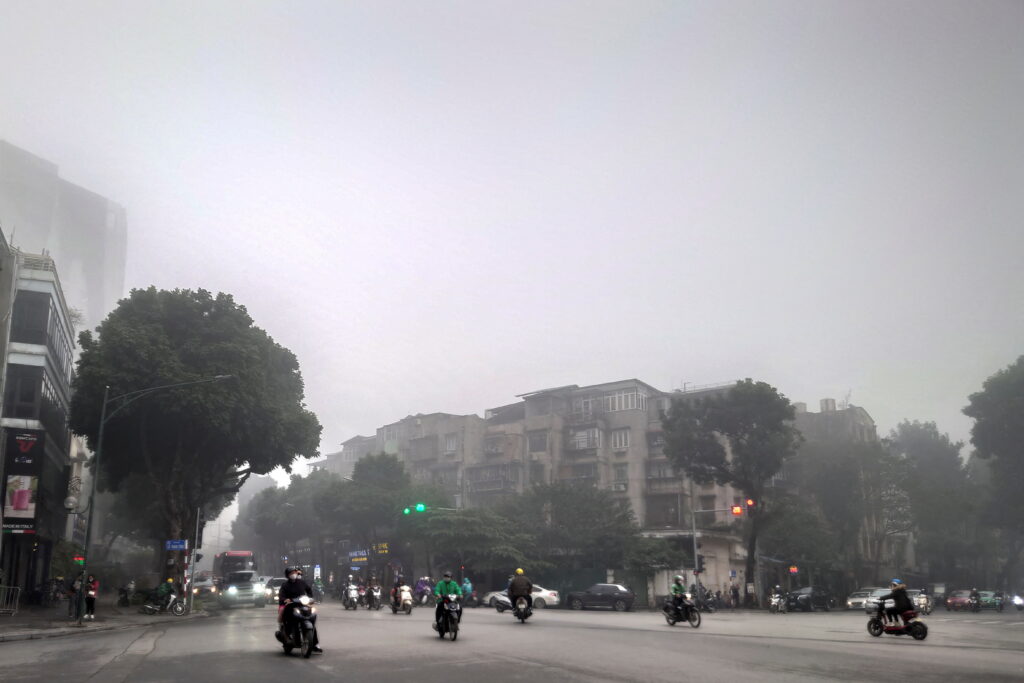Recent amendments to Vietnam’s national energy framework and the expansion of state-led incentives to foster investment in local renewables deployment have been recognised as significant leaps in Vietnam’s path to sustainability. While sustainability issues are gaining public traction, the lack of accountability and transparency in government responses to local environmental issues is challenging the government’s standing with the public.
As part of ongoing efforts to reduce heavy fossil fuel dependency to reach its net zero emissions target by 2050, the Communist Party of Vietnam released the Power Development Plan 8 in 2023, committing a third of Vietnam’s energy mix to solar and wind and decreasing coal’s share to 20 per cent by 2030. Vietnam also became a recipient of the US$15.5 billion Just Energy Transition Partnership in 2022, setting goals to retire coal plants early, improve power transmission grids, and further expand the share of renewables to meet almost half of the country’s energy needs by 2030.
Alongside amendments in national energy frameworks, the state has also sought to increase local renewables investments through several economic incentives. One such program is the introduction of feed-in tariffs for solar energy in 2017, enabling private investors to sell their electricity to the state utility company and its affiliates at above-market rates. This led to an influx in local solar projects, with solar accounting for 10 per cent of the country’s total electricity mix in 2022, rising from less than one per cent in 2018.
Despite the noticeable progress in local renewables deployment, Vietnam continues to grapple with implementing regulations against one longstanding environmental problem: industrial wastewater. According to one study examining wastewater discharge within Vietnam’s industrial zones, around 30 per cent of all industrial effluents released in 2019 were not sufficiently treated before entering nearby waterways. This occurred in spite of regulations enforced since 2009 stipulating the collection and treatment of all industrial wastewater through a central wastewater facility.
As pollution regulations and monitoring practices are often loosely enforced, businesses have been caught disposing of their untreated wastewater directly into nearby seas or rivers. In 2016, a Taiwanese steel company in central Vietnam was found guilty of pumping toxic waste into the nearby sea, killing at least one diver and poisoning more than 140 tons of fish and aquatic animals. Citizens became enraged when state officials remained silent for months over the cause of pollution, only briefly alluding to an industrial chemical spill without initiating further investigation.
As frustration grew, several protests were held throughout 2016 in central Vietnam and Ho Chi Minh City, demanding better compensation for local communities affected by the toxic spill. With up to 20,000 citizens in attendance, these ‘mass fish death’ protests are just one in a series of demonstrations where citizens have clashed with government officials over the state’s murky management of public sustainability concerns. These demonstrations, coupled with the state’s ongoing arrest and detention of environmental activists, have raised further questions around the government’s lack of accountability to its people.
In response to protests and growing criticisms of the outdated, ill-managed and unfeasible aspects of existing pollution regulations,amendments were made in 2022 to impose tighter controls on industrial effluents. These controls include fines, sanctions and operations suspensions for businesses exceeding wastewater discharge regulations. But in the absence of mandatory third-party environmental monitoring, critics remain concerned that the law will continue to grant government officials, or even industries themselves, exclusive authority to enforce pollution guidelines, possibly leading to weak regulatory oversight.
At the same time, the state of the environment has emerged as a key concern among the Vietnamese public in the aftermath of highly publicised industrial pollution disasters. Within Provincial Governance and Public Administration Performance Index reports published between 2015 and 2022, the environment consistently appeared as one of the top ten concerns among Vietnamese respondents, alongside ongoing concerns about poverty, economic growth and corruption.
Within local and international efforts targeting Vietnam’s ongoing energy insecurity and fossil fuel reliance, the push for renewables has solidified the state’s commitments to greening the energy mix and mitigating pollution. Yet without increased transparency and accountability from businesses and government officials, the mismanagement of local environmental challenges will continue to pose dangers to the state’s future legitimacy.
Sasha Lee is a research scholar for the Southeast Asia program at the Asia Pacific Foundation of Canada.


Vietnam has made significant strides towards sustainability by amending its national energy framework and implementing incentives to stimulate local renewable energy investment. The government has committed to reducing fossil fuel dependency and meeting almost half of the country's energy needs through renewables by 2030. But despite noticeable progress, ongoing issues such as inefficient industrial wastewater management and the lack of governmental transparency and accountability pose risks to environmental regulation enforcement and subsequently, the authority of the state.